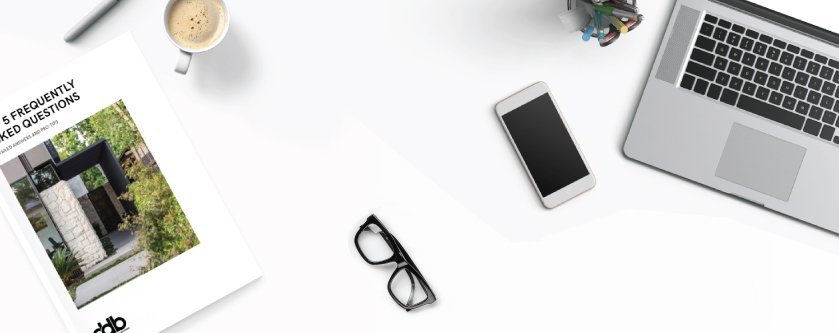
EMAIL #78 - 4TH, JULY, 2020 - DISTRACTION & SELF-AWARENESS
Hi Team,
Like many of us, over the last few months I have been working from home several days a week. I have become increasingly aware that on any given day I am actually more productive when working at home compared to working at the DDB office. This is especially true when doing creative work, such as writing these weekly emails or working on architectural plans or specifications. I am confident that this improved productivity and quality of work is mainly due to being able to focus for longer periods of time while working at home. In other words, I have found there are far fewer personal distractions and interruptions in my home work environment compared to the DDB office, (other than Penny my dog).
"You can't do big things if you're constantly distracted by small things." Unknown
Working with a lot of fewer distractions is something everyone can benefit from, so I am now thinking of ways I can replicate the "home office conditions" into the "work office conditions". Here is my initial "To-do-list,"
- Have a less cluttered desk.
- Turn off all notifications on my laptop and phone.
- Schedule periods of "uninterrupted time" each day.
- Only answer emails twice a day (i.e. 10.00am & 2.00pm).
- Whenever doing creative work, put my phone on silent of leave it in another room.
One of my biggest realizations is that being distracted is a choice and that technology and especially social media is the enemy of meaningful high-quality work. As US author John Di Lemme stated, "Your results are the product of either personal focus or personal distraction. The choice is yours." The real challenge is that distractions are all around us and are unavoidable. But the wise thing to do is to become more self-aware of the things that regularly distract you and develop strategies to eliminate of control these distractions, such as my list above.
This email is titled "distraction & self-awareness". These two topics are intertwined with each other and both largely determine how well you function in general life and how productive and effective you are at your work. Essentially there is nothing wrong with most distractions; however, we regularly use them to avoid pain or unpleasant emotions (like a mini form of escape). The really negative form of distraction is when it becomes a compulsive or addictive behaviour. This is when you continue to engage in an activity even though you know it is wrong, but you do it anyway. Observing and recognising regular distractions is one of the foundations of your self-awareness.
"Self-awareness doesn't stop you from making mistakes, it allows you to learn from them." Unknown
One of the biggest challenges we all face on a daily basis, is that we are in a state of constant distraction. This makes it a real challenge to be fully self-aware and fully engaged in the work we are doing. So, the goal with distraction is not trying to defeat distraction, it is to develop a personal awareness and control of distraction.
"Work is hard, distraction is plentiful, and time is short." Adam Hochschild
In previous Weekly Emails I have touched on the of significant role that self-awareness plays throughout your working life and how it is a prerequisite for being an effective leader. In next week's email I will expand on the topic of
self-awareness and outline why it plays such a large part of success and fulfillment in most areas of your life, even more so now than in previous generations.
Thanks for reading,
Stay safe and stay focussed.
David.
